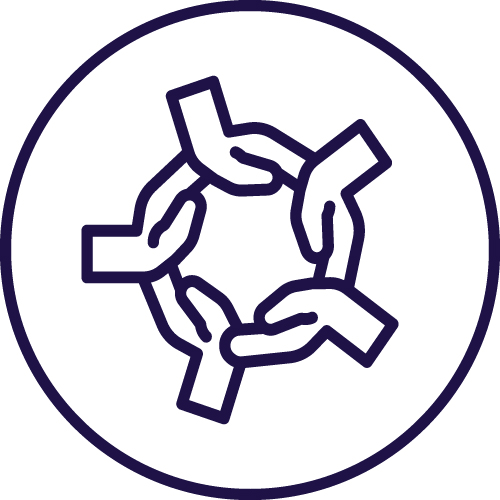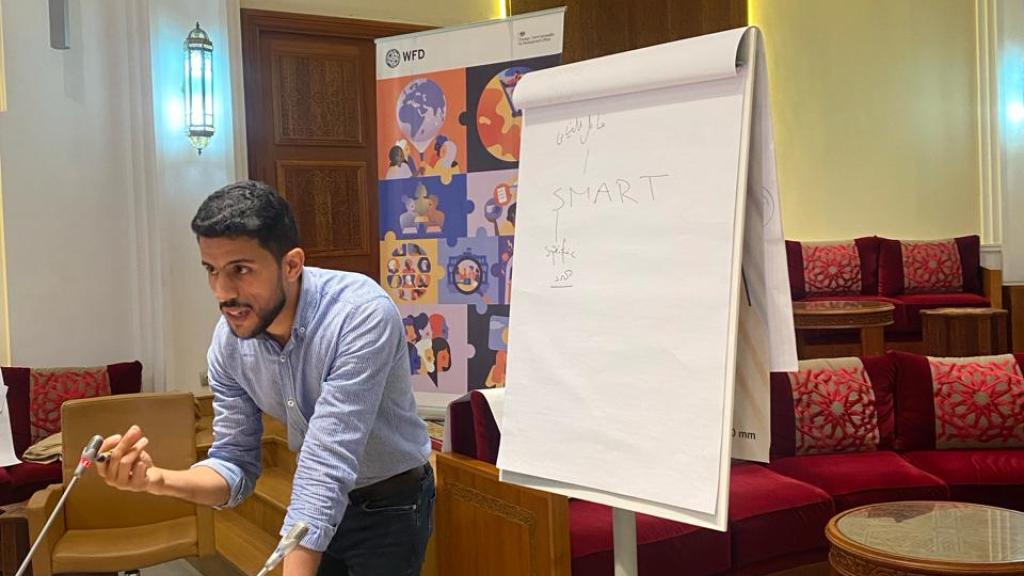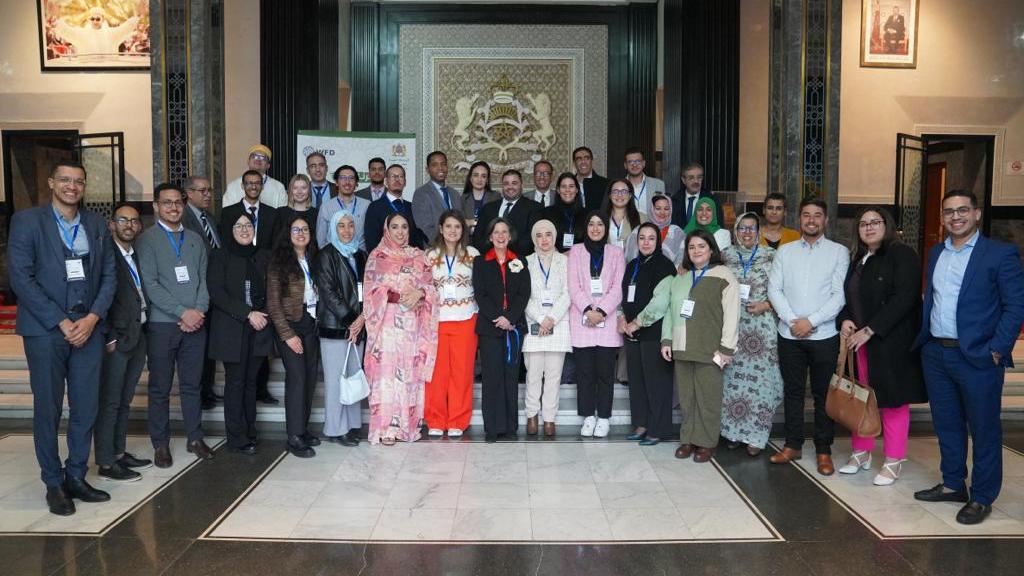In June 2021, WFD signed a Memorandum of Understanding (MoU) for a new five-year partnership agreement with the Morocco House of Representatives. The MoU provides the framework for continuing the collaboration between the two institutions and building on accomplishments from previous programmes.
Our programmes
Enhancing women’s rights in the Middle East and North Africa (MENA)
Background
In the Middle East and North Africa region, it is estimated that 35% of women experience some form of violence. Contributing factors that allow this norm to prevail include a lack of legislation that criminalises domestic violence, limited protection for women inside their homes, as well as a justice and a court system ill prepared to prosecute perpetrators and protect victims. Legislatures can play a crucial role in establishing a legal environment that protects women.
Programme objectives
WFD supports women’s political participation and leadership so they can influence decision-making and bring about positive change. From 2012, WFD’s support to women MPs across the Middle East and North Africa has focused on effective leadership and encouraging women MPs to use their political influence for legislative change that eradicates discrimination against women and girls in the region.
Completed programmes
CSSF Morocco - Supporting Open and Inclusive Democratic Institutions
Parliaments hold governments and decision makers to account. This CSSF-funded programme in Morocco built on the long-standing partnership between WFD and the Parliament of Morocco to promote openness, transparency, citizen engagement, and empowerment of women MPs. WFD trained MPs and parliamentary staff to strengthen the effectiveness of committees and the quality of the laws they produce. WFD, through the programme, also set out to make the Moroccan Parliament more representative and more effective in holding the government to account.
Increasing engagement between the Moroccan Parliament and civil society
Supported by the Shiraka Fund under the Dutch Ministry of Foreign Affairs, this programme supported inclusion and public participation in policy making process in Morocco. This was achieved by enhancing links between Civil society organisations (CSOs) and parliament, as well as increasing their capabilities to work together on advancing key policy issues. In addition to leading to better policy outcomes, such engagement strengthened trust in parliament as a democratic institution.
More completed programmes
Key Results

Strengthened legislative oversight
WFD supported the House of Representatives to adopt the First Public Policy Evaluation (PPE) guide in the Arab region. The Parliament also enhanced its role in Post-Legislative Scrutiny to facilitate the process of evaluating and adopting laws.

Strengthened the financial oversight function of the Parliament
Established the Public Accounts Committee (PAC) in 2015, the first of its kind in the region. The first report of the PAC into fuel subsidies resulted in a successful policy change .

Improved communication in the Parliament
WFD worked with the House of Representatives to reform its Oral Question System, which resulted in a more interactive debate between MPs and the relevant Ministers. The Parliament also modified its communication and its practices thanks to trainings in video production and use of social media making the HoR more inclusive and involving various stakeholders in decision-making .

Enhanced gender representation
The HoR implemented new articles to reinforce the role of women in the Parliament: at least one third of key roles in the HoR are reserved for women. The Working Group on Parity & Equity, with support from WFD, was instrumental in this success. WFD also supported the adoption of a code of conduct to set standards of behaviour for MPs and supported in introducing the first women MPs’ working group for reform.

Enhanced Parliamentary openness
With support from WFD, the HoR broadcasted committee meetings live and renovated their website allowing for more opportunities for citizen engagement.

Promoted accountable governance
The HoR joined Open Government Partnership in August 2019 as the first Parliament in the Arab region to be a member.

Increased Youth engagement
Increased youth engagement through a fellowship programme involving PhD students in the parliament and creation of a section dedicated to the youth on the HoR
Related content
Contact us
United Kingdom





